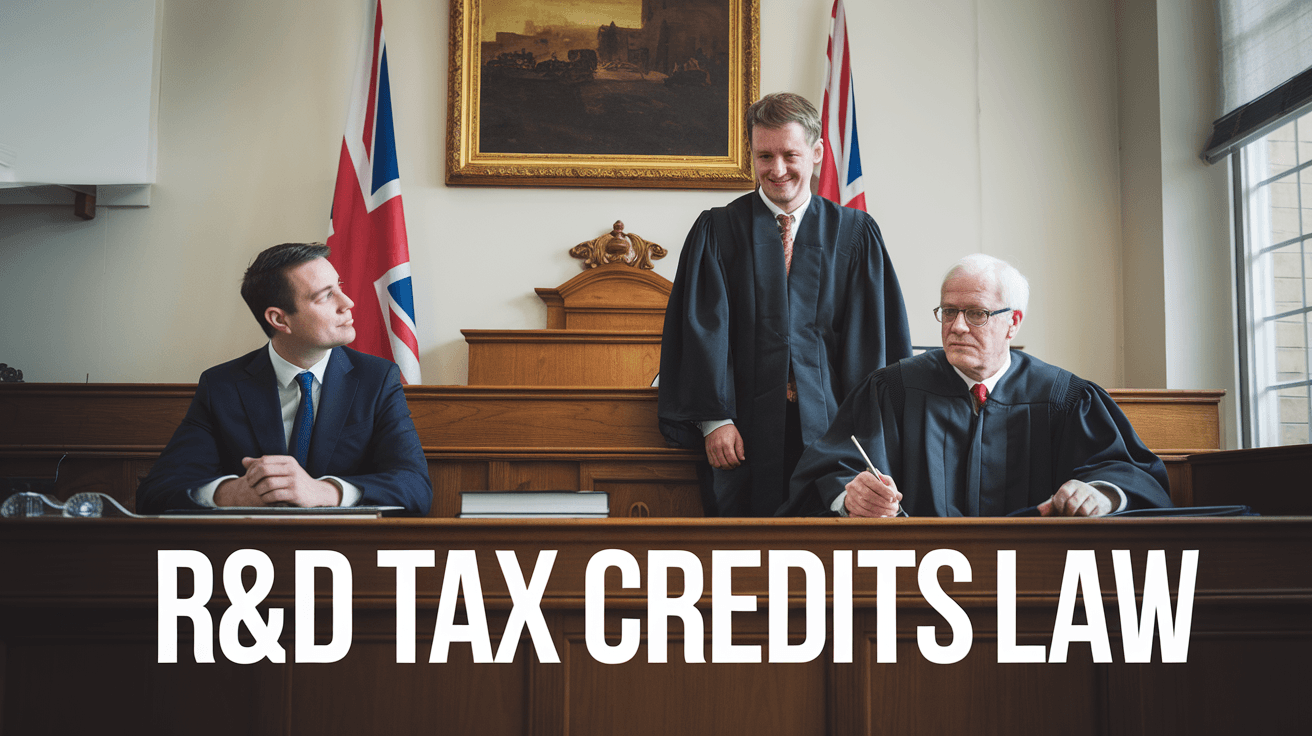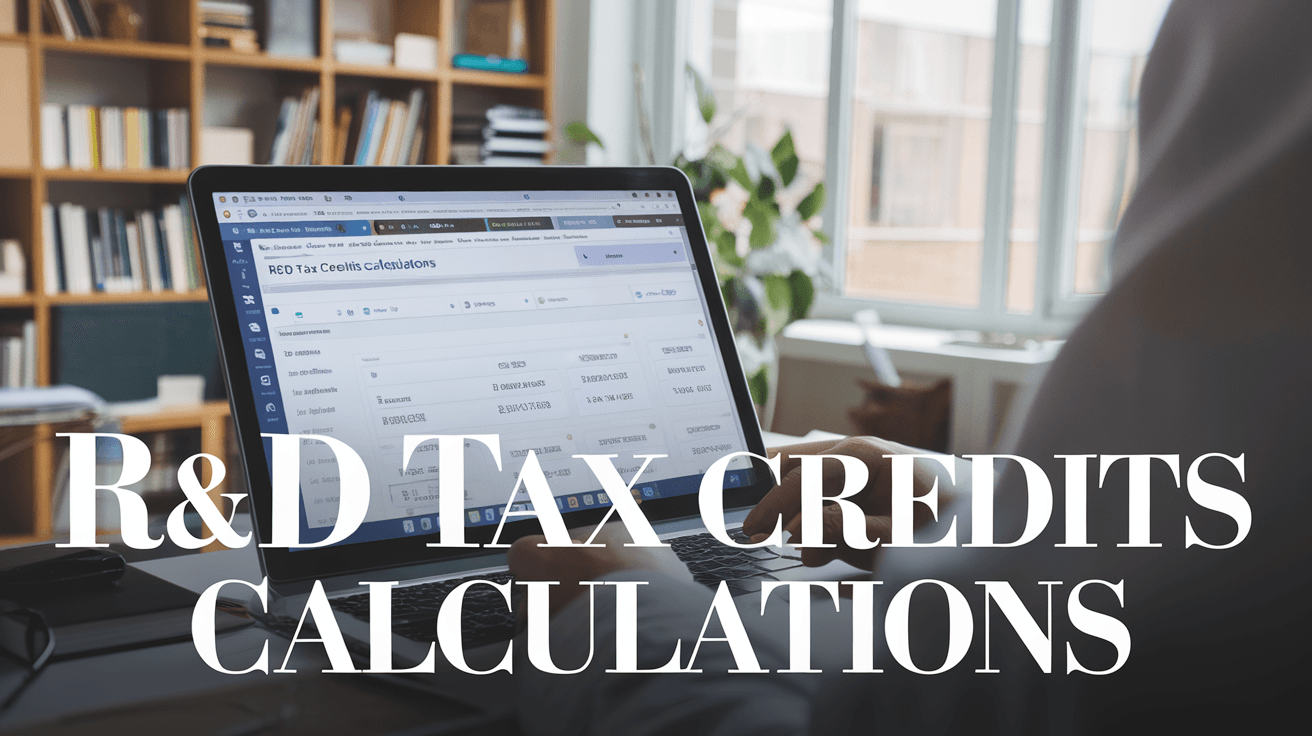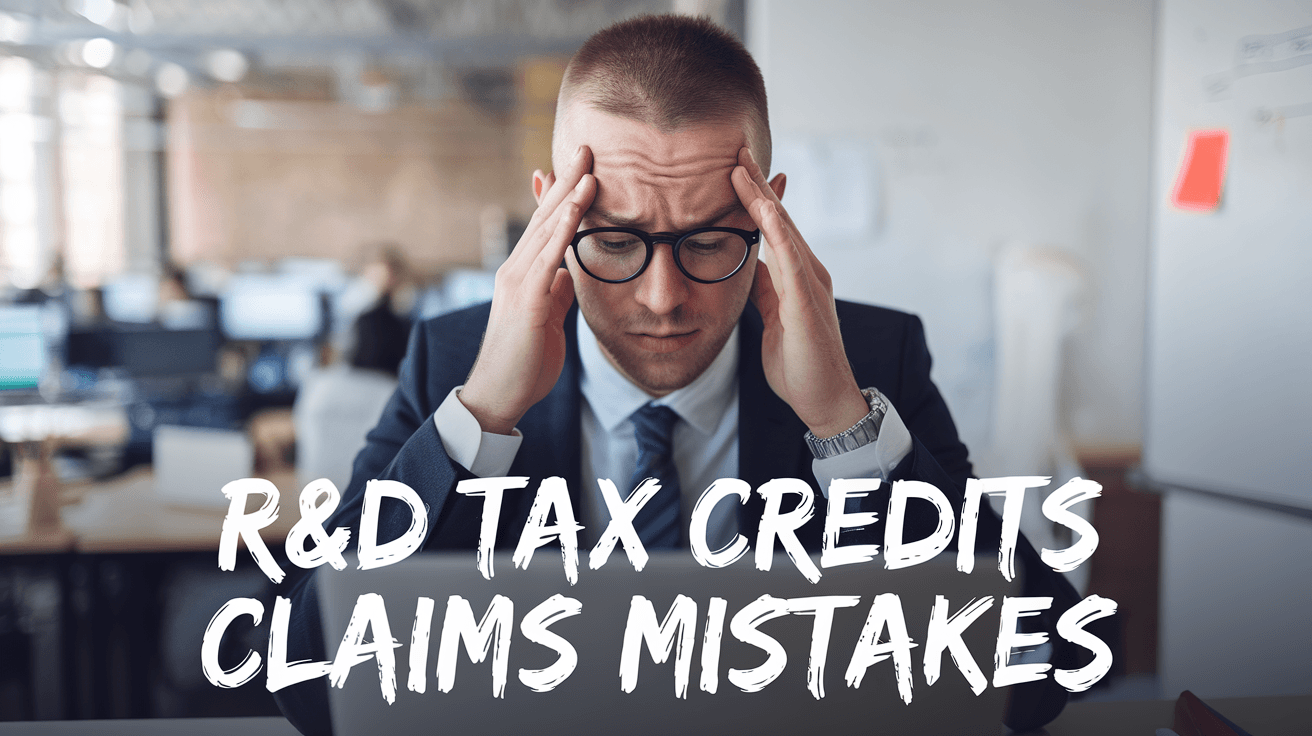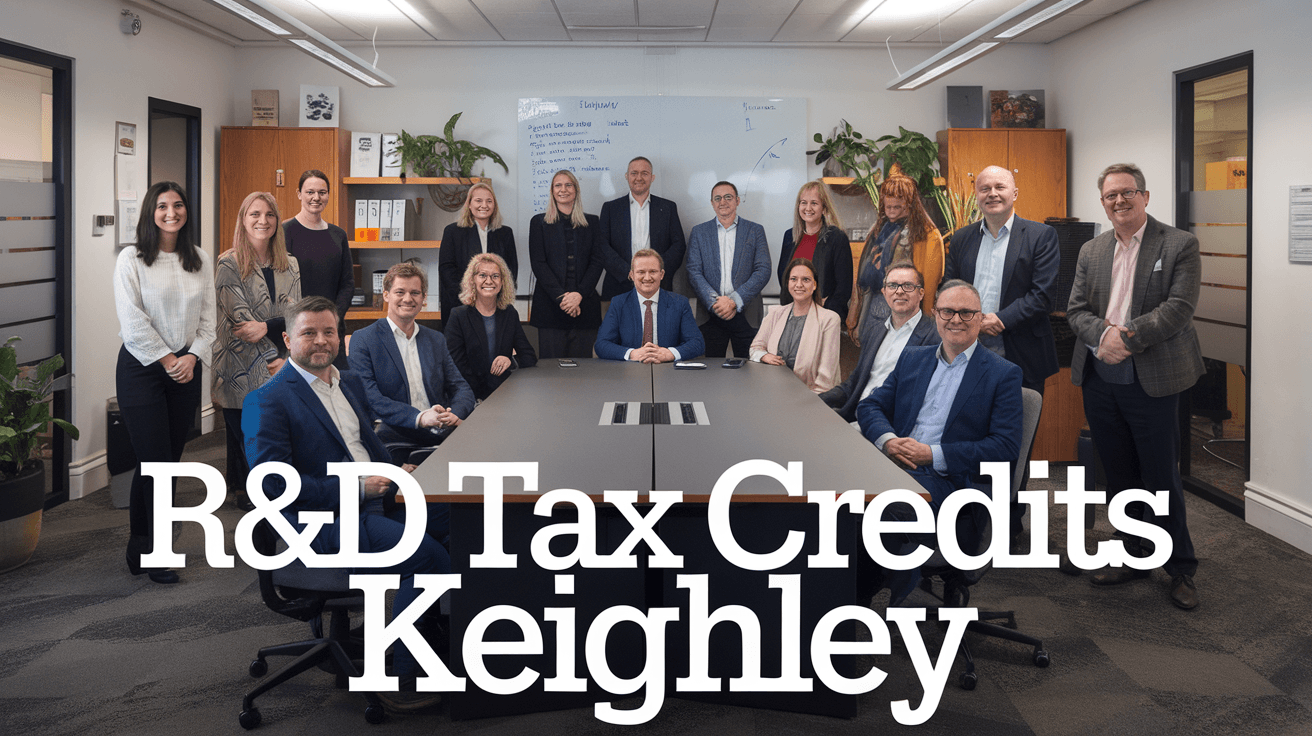R&D Tax Credits Keighley West Yorkshire
R&D tax credits in Keighley West Yorkshire are financial incentives designed to encourage companies to invest in research and development, significantly reducing your corporation tax liability.
To qualify, your company must be a UK entity liable for corporation tax and be involved in projects that resolve scientific or technological uncertainties. The HM Revenue & Customs (HMRC) manages this scheme to support innovation and growth in the local economy.
By leveraging the expertise of R&D Tax Credit Specialists, you can ensure your claims are accurate, thorough, and maximise your potential benefits, allowing you to reinvest in your business and drive further innovation.

How Do R&D Tax Credits Benefit Keighley Businesses?
R&D tax credits significantly boost Keighley businesses by offering financial relief for innovation activities. They enable you to retain more capital for development, enhancing your competitive position.
Financial Advantages
R&D tax credits provide substantial financial relief, enabling you to reduce corporation tax liabilities or receive a cash payment if you are a loss-making company. This relief can be a significant boon, especially during challenging economic times.
Competitive Edge in Innovation
By leveraging R&D tax credits, you can invest more in research and development, driving innovation and staying ahead in your industry. This financial support allows you to develop new products, improve existing processes, and attract top talent, all of which are crucial for maintaining a competitive edge in the market.

Which Industries Commonly Claim R&D Tax Credits?
The technology sector, manufacturing, life sciences, and other innovative industries frequently claim R&D tax credits in the UK.
Technology Sector
The technology sector often claims R&D tax credits due to its focus on developing new software, hardware, and digital solutions. Companies in this industry invest heavily in research to create cutting-edge products and services, making them eligible for significant tax incentives.
Manufacturing
Manufacturing firms are another key player in claiming R&D tax credits. These companies often innovate in areas such as automation, materials science, and process improvements, which can significantly reduce costs and improve efficiency.
Life Sciences
The life sciences industry is renowned for its extensive research and development efforts. Pharmaceutical companies, biotech firms, and medical device manufacturers regularly invest in R&D to develop new treatments, drugs, and devices, making them prime candidates for tax credits.
Others
Other industries that can claim R&D tax credits include construction, automotive, and renewable energy. These sectors often engage in innovative projects that push the boundaries of existing technology and contribute to sustainable solutions.

What Qualifies as R&D Under UK Tax Law?
R&D (Research and Development) under UK tax law is defined as a project that seeks to achieve an advance in science or technology. This can include creating new products, processes, or services, or improving existing ones.
Qualifying Activities
R&D activities that qualify for tax relief typically involve resolving scientific or technological uncertainties. This includes developing new methodologies, undertaking trials, and conducting feasibility studies. For instance, creating innovative software algorithms or experimenting with new materials would be considered qualifying activities.
Excluded Activities
Certain activities are specifically excluded from qualifying as R&D for tax purposes. These include routine data collection, market research, and quality control testing. Activities like modifying an existing product without substantial innovation or conducting routine engineering tasks do not qualify for R&D tax relief.
Understanding what qualifies as R&D is crucial for businesses looking to benefit from tax incentives. If you are unsure, consulting a tax advisor can provide clarity and ensure you maximise your eligibility.

How Are R&D Tax Credits Calculated?
R&D tax credits are calculated based on the qualifying research and development expenses you incur. The amount you can claim depends on whether your company qualifies for the SME Scheme or the RDEC Scheme.
SME Scheme
If your company qualifies as a small or medium-sized enterprise (SME), you can claim up to 130% of your qualifying R&D costs as an enhanced deduction. This means that for every £100 spent on R&D, you can deduct £130 from your taxable profits. Additionally, if your company is loss-making, you can claim a payable tax credit of up to 14.5% of the surrenderable loss.
RDEC Scheme
For larger companies, the RDEC Scheme applies. Under this scheme, you can claim a payable tax credit of 13% on your qualifying R&D expenditure. This is calculated by adding 13% of your R&D costs to your corporation tax liability. If your company is loss-making, you can still claim a payable tax credit, which is typically around 13% of the R&D expenditure.
Calculating R&D tax credits can be complex, so it's often advisable to consult with a specialist to ensure you maximise your claim.

Recent Changes to UK R&D Tax Credits
The UK government has recently introduced several updates to the R&D tax credit scheme, impacting how you can claim and utilise these benefits. These changes aim to streamline the process and provide more support to innovative businesses.
Policy Updates
- Flatter Rate Introduction: The government has introduced a flatter rate for R&D tax credits, simplifying the claim process for small and medium-sized enterprises (SMEs).
- Increased Thresholds: The thresholds for eligible expenditure have been increased, allowing more companies to benefit from the scheme.
- Digitalisation of Claims: You can now submit your R&D tax credit claims online, reducing the administrative burden and speeding up the process.
These policy updates are designed to make the R&D tax credit scheme more accessible and efficient, ensuring that you can focus more on innovation.
Impact on Businesses
The recent changes to the R&D tax credit scheme will have a significant impact on your business. By simplifying the claim process and increasing the eligible expenditure thresholds, the government aims to encourage more companies to invest in research and development. This can lead to increased innovation and competitiveness in the market, ultimately driving growth and success for your company.

How Can Keighley Businesses Apply for R&D Tax Credits?
Keighley businesses can apply for R&D tax credits by following a structured process to document and claim eligible research and development activities. Here’s how you can get started:
Application Process
- Identify Eligible Activities: Determine which projects or activities qualify for R&D tax credits. This typically includes innovative projects, new product development, or improvements in existing processes.
- Calculate Eligible Costs: Sum up the costs related to eligible R&D activities, such as staff wages, materials, and software.
- Submit a Claim: Complete the R&D tax credit claim form, which can be found on the Government’s website. Ensure you provide detailed information about your R&D activities and costs.
- Consult a Specialist: If you are unsure about the process, consider consulting a specialist who can help you navigate the application and maximise your claim.
Required Documentation
You will need to gather and submit the following documents to support your claim:
- Project Documentation: Detailed descriptions of your R&D projects, including objectives, methods, and outcomes.
- Financial Records: Payroll records, invoices, and other financial documents that substantiate your R&D costs.
- Technical Reports: Reports from technical experts or consultants that validate the innovative nature of your projects.
- Claim Form: The completed R&D tax credit claim form, thoroughly filled out with all necessary information.
By following these steps and providing the required documentation, you can successfully apply for R&D tax credits and benefit from the financial support designed to encourage innovation in Keighley businesses.

Common Mistakes to Avoid When Claiming R&D Tax Credits
Avoiding common mistakes is crucial when claiming R&D Tax Credits to maximise your financial benefit. Here are some key areas to focus on.
Overclaiming
Overclaiming can lead to HMRC audits and penalties. Ensure your claims are accurate and substantiated with detailed documentation.
Underclaiming
Underclaiming means missing out on valuable funds. Don’t underestimate your eligible activities or costs. Consult R&D tax specialists to ensure you’re claiming everything you’re entitled to.
Documentation Errors
Documentation errors can weaken your claim. Keep thorough and organised records of all R&D activities and related expenses. Mistakes in your documentation can delay the process and result in disallowed claims.
Clear and accurate records are essential for a successful R&D Tax Credit claim.

How Can Professional Advice Enhance R&D Tax Credits Claims?
Professional advice can significantly improve the success rate of your R&D tax credits claims. By leveraging the expertise of tax credit specialists, you can ensure that your claims are thorough, compliant, and maximise your potential benefits.
R&D Tax Credit Specialists play a crucial role in navigating the complexities of R&D tax credits. Here’s how they can help:
- Understanding Legislation: Specialised knowledge of UK tax laws and HMRC guidelines ensures that your claims are accurate and compliant.
- Identifying R&D Activities: Experts can identify eligible R&D activities that you might overlook, ensuring you don’t miss out on any potential benefits.
- Documentation and Evidence: They assist in gathering and organising the necessary documentation and evidence to support your claims.
The benefits of expert guidance are substantial. With their help, you can:
- Maximise Your Claim: Experts can help you identify all eligible costs and activities, potentially increasing the size of your tax credit.
- Reduce Administrative Burden: They handle the complex paperwork and documentation, allowing you to focus on your core business activities.
- Minimise Risks: Professional guidance reduces the risk of errors or audits, ensuring your claims are robust and defensible.
By working with R&D Tax Credit Specialists, you can optimise your R&D tax credits and gain a competitive edge in the market.
In Conclusion
R&D tax credits in Keighley West Yorkshire are a valuable financial incentive designed to support innovation and growth in your business. By claiming these credits, you can significantly reduce your corporation tax liability or receive a cash payment, which can be reinvested in further development and innovation. To maximise the benefits, it's crucial to understand the eligibility criteria, qualifying activities, and the application process. If you're unsure or need assistance, consider consulting R&D Tax Credit Specialists to ensure your claim is accurate and maximises your potential benefits. Don't miss out on this opportunity to boost your business's financial health and competitive edge—contact R&D Tax Credit Specialists today to get started.

